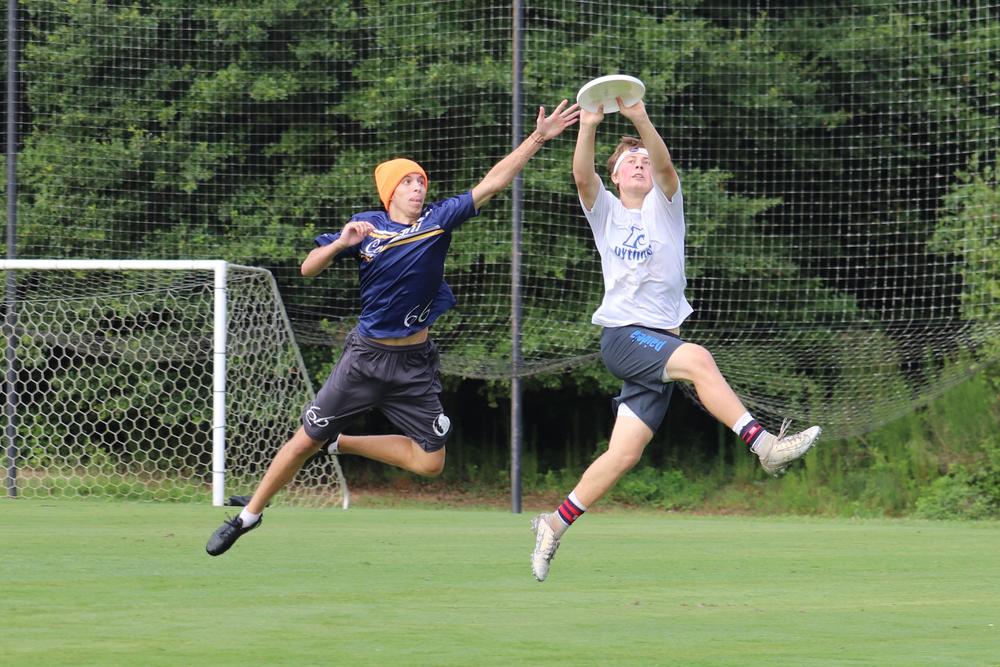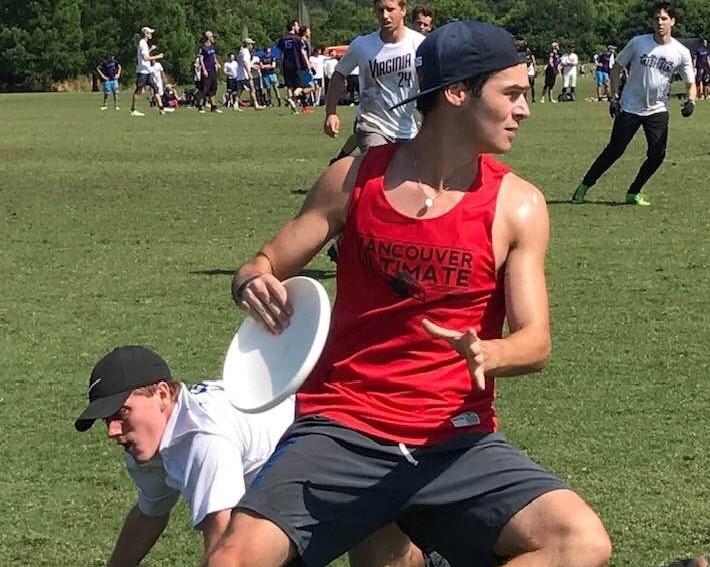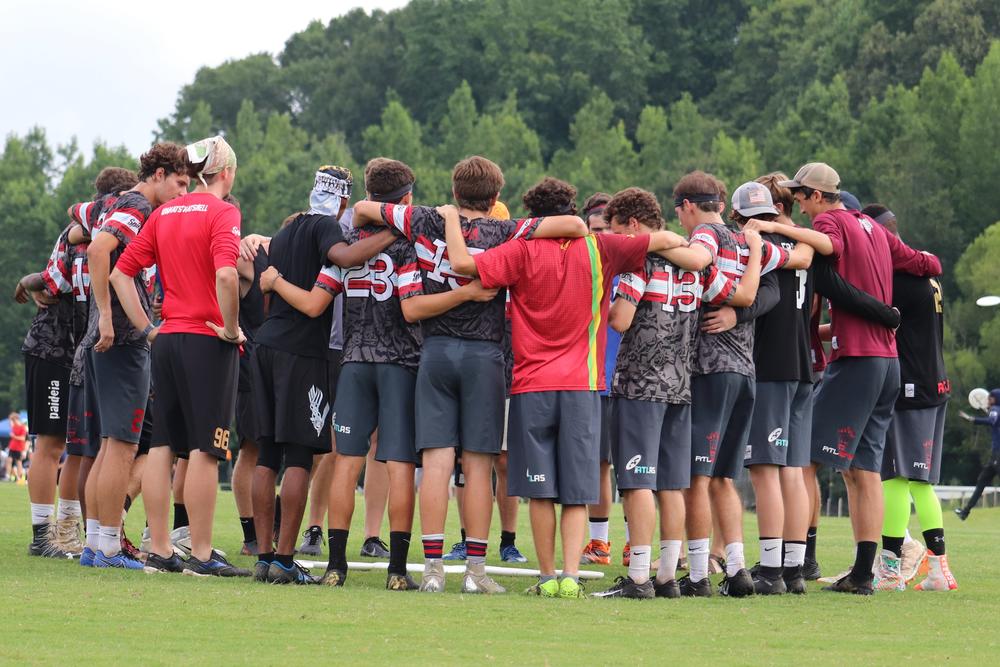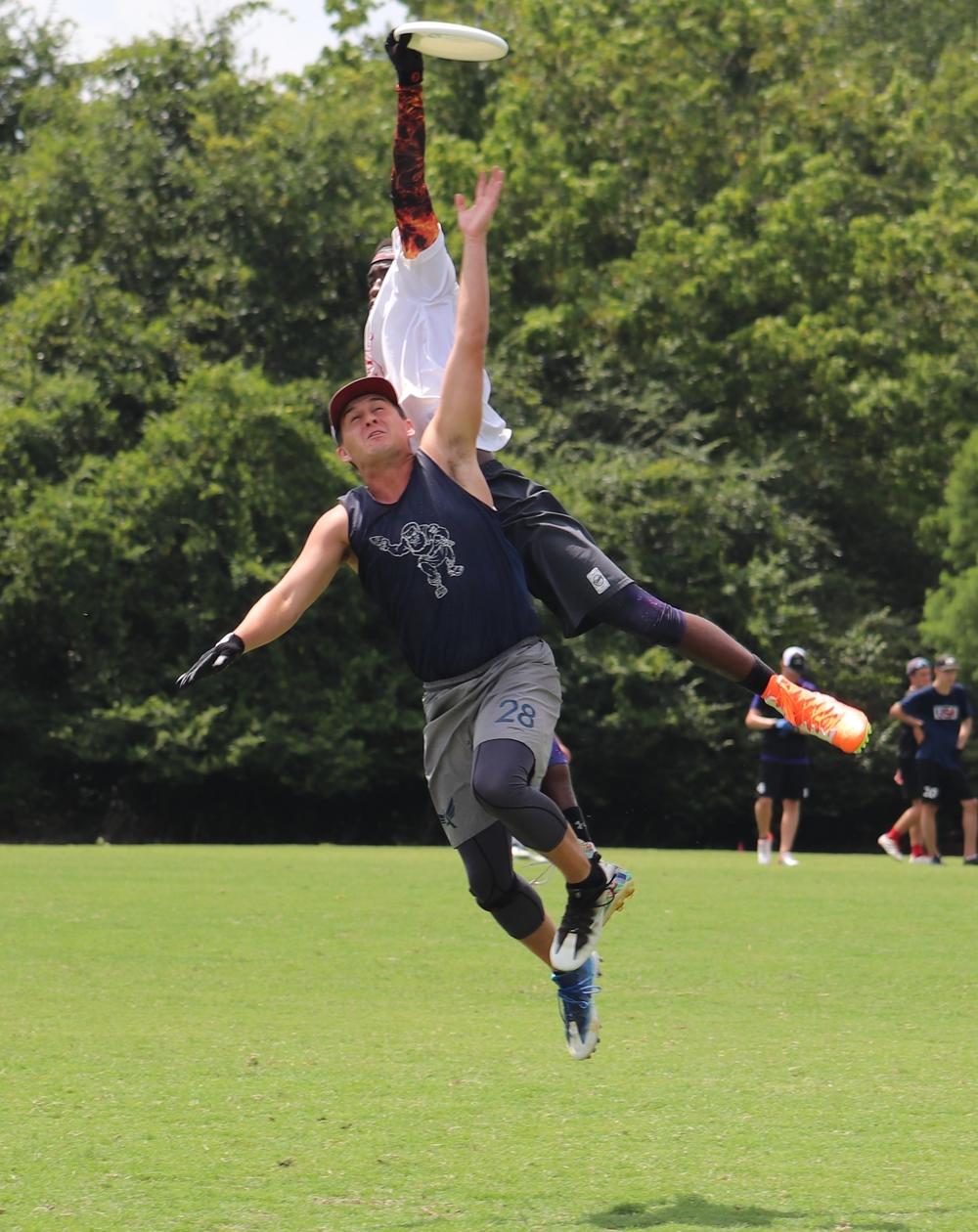Section Branding
Header Content
An Ultimate Chance At Redemption
Primary Content
Three years ago, none of the kids on Atlanta’s under-17 (U-17) Ultimate Frisbee club team expected to make it to the finals. The high schoolers had dedicated their summer to the goal of simply going to national championships, and their coach, T.J. Martin, said he had no idea whether the team would be good.
But something strange happened when they got there: they won game after game. And not just by one point or two points, a margin of error that could be explained away as luck. They won by five points, 10 points, even 14 points in a game to 15, Martin said.
As the days of back-to-back matches pushed on, the team made it through pool play, then on to quarterfinals, without losing a single game. Parents and fans who had driven the 16 hours to Blaine, Minnesota were ecstatic. And slowly, new member Julian Shrader began to realize that he had underestimated his teammates.
Then, as they dominated semifinals, Shrader noticed a shift.
The athletes were not as worried about individual matches: they were allowing themselves the goal of winning the whole weekend. He and his team members were talking more and more about the possibility of beating Seattle, a perennial powerhouse that had won the tournament for the last four years.
The finals against Seattle came down to a single point.
With a 12-11 lead, one of the Atlanta throwers gauged the wind, pulling up some grass and letting it fall from his fingers. A cheer started from the sidelines as he prepared for a downfield pass, beginning Atlanta’s offensive push to 1st place.
Then someone dropped the disc.
Shrader was only 15 when his team lost that game, right out of his freshman year of high school. Now at age 18, heading off to college, he can still feel the “indescribable” disappointment that he and his team shared when they lost during his first year as a club player.
“Whenever you lose a game on universe point like that, every single player on the team is always thinking 'what little thing could I have done differently to change the outcome?'” Shrader said, “The entire team was just crying, and just broken…we knew we would give it our all if we were together again.”
And now in 2019, most of the group is together again, with the same coach, for one final chance to win the national title before they age out of the youth division entirely.
Their status has changed. 2016 U-17 team players David Chalmers, Ben Dameron, and Aidan Downey are now U-20 team captains. The team is now expected to win the championship, an improvement that Coach Martin partially attributes to the 2016 loss.
“There’s nothing that could have motivated them more than being so close [to winning],” Martin said.
But Shrader says that his dedication to the sport goes beyond his self-proclaimed “hunger” to win. He says that Ultimate’s unique charm comes from the absence of referees.
Unlike other sports, players call their own fouls and are expected to uphold the “Spirit of the Game,” a moral obligation to not abuse this system. Shrader says that while his teammates on other sports have encouraged him to argue with referees' calls, he willingly call his own fouls in ultimate, even if no one else notices them.
“The team camaraderie in any team sport has always drawn me in,” Shrader said, “and ultimate isn’t necessarily just a game, but also a community ... the sportsmanship aspect within ultimate is unlike any other sport.”
The sense of community that Shrader gains from ultimate has driven him to take responsibility for his own training schedule throughout the summer, practicing more than he did as captain of his high school varsity basketball team. His passion for the niche sport has even motivated him to continue playing despite “weekly” jabs from friends and family who wonder why he does not limit himself to a more traditional pastime.
“You’re always having to deal with people saying that [Ultimate] isn't a real sport, because it's like, you're playing a game with a Frisbee,” Shrader said, “People think that ultimate isn't a sport until they see the sport actually being played.”
In actuality, the sport demands much more physical involvement than a simple Frisbee toss.
Two teams of seven start in the middle of a 70 yard long field. The offense's goal is to get the disc into their opponent’s endzone, but the disc can only be advanced up the field through throws and catches, which often come in the form of horizontal dives and high jumps. This all occurs while the defense tries to block the disc’s advance.
The team officially practices twice a week to perfect plays and technique, though many players meet outside of the official practice times. During these meetups, Coach Martin says the 2016 loss is frequently brought up. But he emphasizes that the team has started to find motivation in it instead of intimidation.
And while Martin says that he and the assistant coaches encourage the players to think about improving rather than winning, the players “realistically” hope to win the championship.
To watch the national youth club tournament, tune in on Ultiworld.com on August 3-5.




